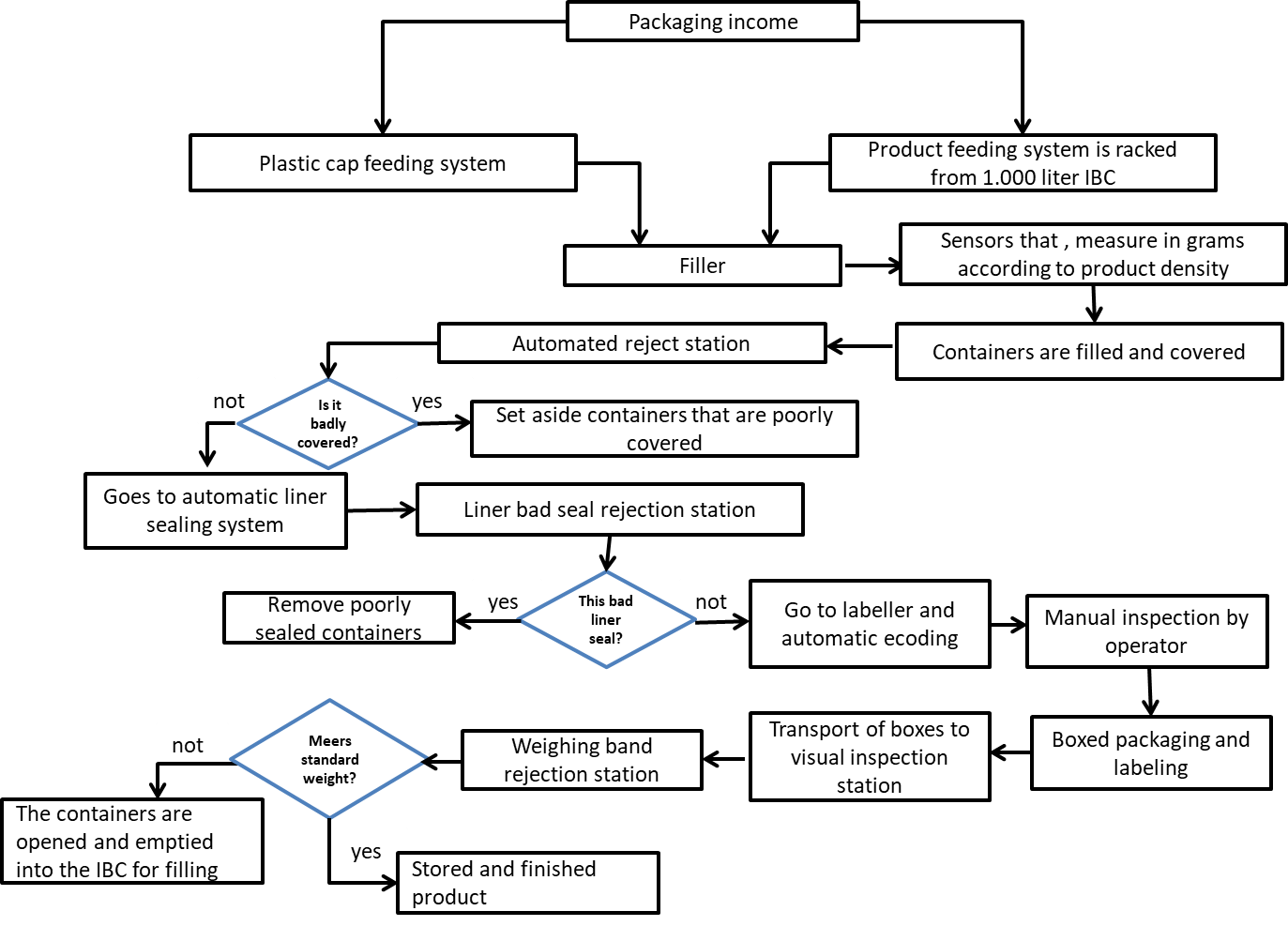Improvement of the filling line of a company of the agrochemical sector through the application of CTS satisfaction criteria and the PHVA cycle.
DOI:
https://doi.org/10.17981/bilo.2.1.2020.13Keywords:
filling process, Critics of satisfaction, reprocessing, PHVA, PHVA cycle, fillerAbstract
Today organizations have the challenge of adapting to an environment that can be changing and unpredictable, with a high level of competence and demand to improve, grow and develop according to market needs.
Therefore, organizations need tools that help them in their evolution to ensure customer satisfaction and be more competitive; Included in these tools is the PHVA cycle, which allows to continuously improve the processes of an organization and contributes beneficially to an organization. For this reason, this study aims at an approach based on the identification of CTS and the implementation of a PHVA cycle that is a management tool in which this methodology will allow to solve recurrent and chronic problems by determining the root causes for the most important quality problems in the filling process of the PACKER LLPAC-02 filler, in the production area to solve these problems that have an impact on the company; First, the identification of CTS satisfaction critics in the filling process is carried out and then the PHVA cycle methodology is applied to determine the chronic problems that affect said process.
This article intends to carry out a case study of a company in the agrochemical sector to contribute to its development and provide benefits with its implementation.
Downloads
References
Diego, G., Calder, M., & Moreu, P. (2014). Improving the effectiveness of a beer bottling line by applying
TPM. Universidad de Sevilla, Escuela Superior de Ingenieros. Departamento de Organización Industrial
y Gestión de Empresas I, Ing. Quimica. Retrieved from
http://bibing.us.es/proyectos/abreproy/20449/fichero/PFC_Diego_Moncayo.pdf
Dionicio Neira,Miguel Ortiz, Sandra De la Hoz, Cristiano Paggetti,Laura Noffrini, N. F. (2020). applied
sciences Smart Product Design Process through the Implementation of a Fuzzy. Universidad de La Costa,
Barranquilla, Colombia.
Juan José Contreras Hurtado. (2010). Design of Technical Systems, Industrial Maintenance, Project
Management and Plastics of 2009 degree projects. Universidad EAFIT, Medellín, Colombia.
Laura Ibarra. (2018). Feasibility study for the assembly of a packaging filling, sealing and coding machine
that improves productivity in the cosmetics industry. Fundación Universidad de América, Facultad de
Educación Permanente y Avanzada. Bogota. Retrieved from
https://repository.uamerica.edu.co/bitstream/20.500.11839/7174/1/791344-2018-GE-II.pdf
Manuel, P., & Moreu, P. (2010). Improving the effectiveness of a beer bottling line by applying TPM.
Universidad de Sevilla, Escuela Técnica Superior de Ingenieros de Sevilla. Departamento de
Organización Industrial y Gestión de Empresas Ing. Industrial., (plan 98). Retrieved from
http://bibing.us.es/proyectos/abreproy/4902/fichero/Proyecto.pdf
Nelson, G., & Gonzalez, C. (2017). Feasibility study for the acquisition of a filling machine in the company
PREFLEX S.A. Universidad Distrital Francisco Jose de Caldas, Facultad Tecnológica. Bogota, 1–124.
Retrieved from
http://repository.udistrital.edu.co/bitstream/11349/6930/1/GonzalezDuarteCesarAugusto2017.pdf
Paloma, B., & Moreu, P. (2011). Study of a packaging line and application of the TPM Methodology to
increase its efficiency, by reducing small stops in a grouping unit for cans packaging. Universidad de
Sevilla, Escuela Superior de Ingenieros. Departamento de Organización Industrial y Gestión de
Empresas, (Plan 98). Retrieved from http://bibing.us.es/proyectos/abreproy/4979/fichero/PFCPaloma+Barrera+Castellano.pdf
Ortiz-Barrios, M. A., Herrera-Fontalvo, Z., Rúa-Muñoz, J., Ojeda-Gutiérrez, S., De Felice, F., & Petrillo,
A. (2018). An integrated approach to evaluate the risk of adverse events in hospital sector: From theory
to practice. Management Decision, 56(10), 2187-2224. doi:10.1108/MD-09-2017-0917
Ortiz, M. A., & López-Meza, P. (2016). Using computer simulation to improve patient flow at an outpatient
internal medicine department doi:10.1007/978-3-319-48746-5_30
.[10] Ortiz-Barrios, M. A., Aleman-Romero, B. A., Rebolledo-Rudas, J., Maldonado-Mestre, H., Montes-Villa,
L., De Felice, F., & Petrillo, A. (2017). The analytic decision-making preference model to evaluate the
disaster readiness in emergency departments: The A.D.T. model. Journal of Multi-Criteria Decision
Analysis, 24(5-6), 204-226. doi:10.1002/mcda.1629
Barrios, M. A. O., & Jiménez, H. A. F. (2014). Metodología miceps para control estadístico de procesos:
caso aplicado al proceso de producción de vidrio templado. Prospectiva, 12(2), 73-81.


 English
English
 Español (España)
Español (España)
